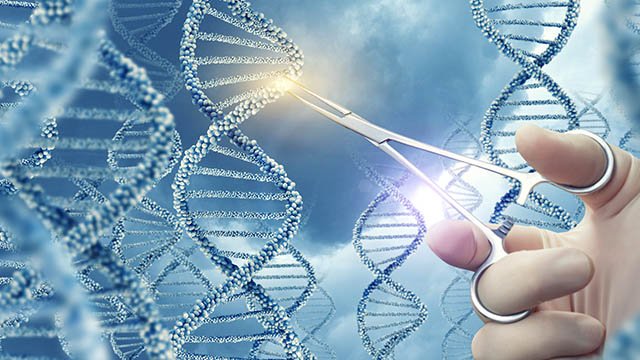Author of this article and longtime GMO critic Geoffrey Lean cites the definition of gene editing as “speeding up a process that might happen naturally”. This definition is GMO industry framing that is based on zero evidence.
The main scientific development of gene editing involves changing a plant or animal’s DNA by altering its own genes, through cutting and splicing using CRISPR-Cas9 technology, which is colloquially described as ‘genetic scissors’. Proponents claim this speeds up a process that might happen naturally which is different from genetic modification (GM) that introduces genes from different species altogether — such as from peppers into bananas, or from jellyfish into mice — which could never happen in nature.

For example, the development of hornless cattle, which were later revealed by U.S. regulators to contain foreign genes that conferred resistance to antibiotics, possibly creating a risk to consumers. Similarly, an attempt to edit rice caused a wide range of unintended and undesirable mutations, which actually reduced, rather than increased, yields.
These changes will only apply in England. Scotland has already come out against them, and Wales is expected to do the same. This week’s move will change UK regulations by the end of the year to ensure that scientists will no longer have to do risk assessments or obtain permission to carry out field trials.
Ministers say that the next step is introducing legislation that would allow gene-edited food from crops and livestock that could have been created naturally, or through traditional breeding, to be sold without having to go through GM regulations and safety tests. They insist gene editing should be exempt from GM regulations and should not even need to be labeled as such. The European Union still insists on treating genetically modified and gene-edited products exactly the same. Dame Ottoline Leyser, who leads UK Research and Innovation, calls this ‘mad’.
Read the whole article: Click Here


